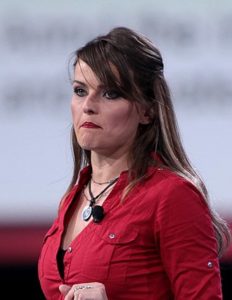
The rise of libertarianism in Latin American is making free market capitalism fashionable in recent years. Indeed, the popularity of intellectuals like Axel Kaiser in Chile, Gloria Álvarez in Guatemala or Javier Milei in Argentina would have been difficult to conceive a few years ago. In many cases, these icons and their supporters dominate the economic conversation on traditional and social media.

Intellectuals on the left have not been slow to react to this surge in the popularity of free markets and accuse their defenders of being extremist. In ¿La rebeldía se volvió de derecha?, historian Pablo Stefanoni asks the question of whether being ‘rebellious’ is now a synonym of being right-wing. Historian Federico Finchelstein also explicitly equates economically libertarian ideas in Latin America with ‘post-fascism’ in his Breve historia de la mentira fascista. These comparisons are also common in mainstream American media. (Examples are to be found in academic journals and the press.)
But free-marketeers are far from being far-right or fascist. If anything, this confusion just reveals the degree to which society has moved to the left in the past century. Indeed, as we will see, it would be impossible to call free-marketeers ‘extremist’ without taking into account a particular evolution of ideas and policies over time.
Many of the most popular economically libertarian proposals in Latin America would have been described as ‘classical liberal’ just about a century ago. In Argentina, for example, Javier Milei initially became known because he called to eliminate the Central Bank. And in fact, Argentine classical liberals voiced their concerns about the existence of such an entity before its creation in 1935. Specifically, classical liberals (and even socialists) warned that political pressure on the Central Bank could allow governments to impose indirect taxes on everyone— which is exactly what happened. It is unsurprising, then, that there are renewed calls for eliminating this institution in 2022, after decades of high inflation. Yet the idea of doing away with the Central Bank, which was all but extreme some decades ago, seems ludicrous even to free-market proponents today.
More generally, free-marketeers face an ideologically uneven playing field in Latin America. If we take government size as a variable, we notice that average public spending levels in Latin American countries has increased from being marginal to accounting for well over 30% of GDP. However, public discourse has become so skewed to the left that the ‘burden of proof’ lies on libertarians to prove why the size of the government should be reduced to a level that only a few decades ago would have been deemed compatible with classical liberalism and even social democracy. In the Uruguayan 2019 presidential election, for example, the mere idea of fiscal adjustment was described as ‘savage’ by the left-wing candidate. This shows to what extent leftist positions have become the standard against which ideas and proposals are to be measured.
In The New Politics of the Welfare State, Paul Pierson argued that the development of the welfare state makes reducing the size of government an increasingly unpopular option, since so many depend on it for a living. In Latin America, the same logic can be applied to a country like Brazil in terms of trade: For decades, protectionist policies have created so many interest groups which depend on high tariffs that even Paulo Guedes, an ardent supporter of free trade who since 2018 is the Minister of Economy, faces serious difficulties in lifting them. Yet this does not preclude left-wing analysts from accusing him of being part of the far-right, as if the world with fewer protectionist barriers that existed in the past could not even be conceived.
Left-wing intellectuals are using the term ‘libertarian’ in order to identify extremism: But this ‘extremism,’ at least with regards to economics, is merely a function of time. Central banks, tariffs, the very size of government: Many ideas that are promoted by libertarians were, in the past, backed by classical liberals and even progressives whom nobody would have accused of extremism. Just because the anti-capitalist left has become mainstream in Latin America in recent times does not mean that there are no precedents for free-market capitalism, so next time you hear someone describing free-market economics as extremist, remind them of historical context — They will have to think again and offer actual arguments in order to delegitimize capitalism. If they are able to.
Marcos Falcone is the Project Manager of Argentina’s Fundación Libertad the host of the Téngase presente podcast and a bi-monthly contributor to Argentina’s edition of Forbes.

Comments are closed.